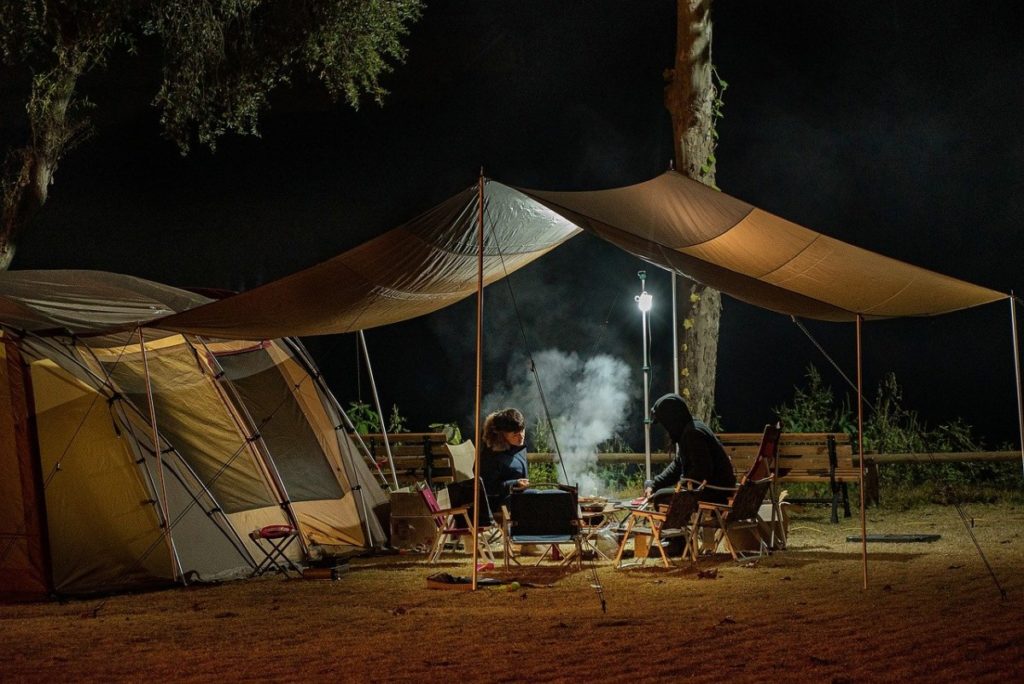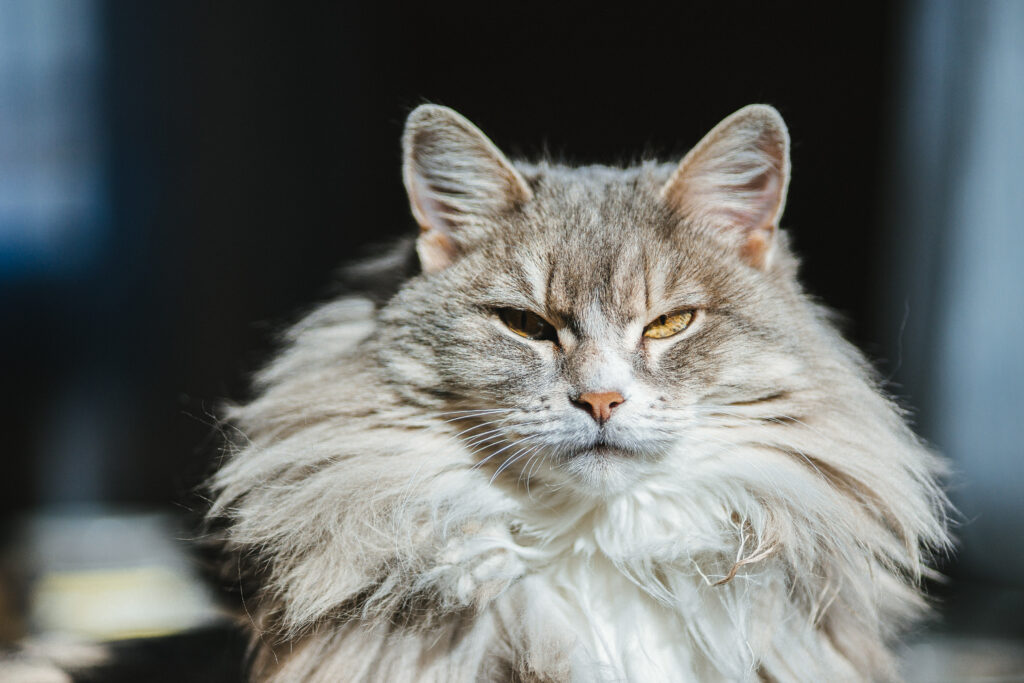During your time in the Netherlands, you’ve probably heard the word gezellig being used. Dutchies are very loud and proud of this concept — so let’s explore the meaning behind it together!
This word also happens to be not so gezellig to pronounce, and it can’t be directly translated into other languages — yet it is a concept that all of us can understand and appreciate.
Gezellig can best be described as a state of cosiness and togetherness — a shared sense of joy of spending time together with friends, or drinking at a terrace by the canal after work.

The word can be used in a lot of contexts, so read below for our guide on this magical and very specific Dutch word!
Word origin
The origin of the word comes as a derivation from the word gezel, which means “friend” or “companion”.
READ MORE | 17 facts about the Dutch language that will make you go ‘echt’?!
Back in the old days, gezel was also used to classify a “journeyman.” This was used in the Dutch guild system as a group that forms around master craftsmen, which is where the word also got its connotation of belonging.
What makes something gezellig?
A search on how the word is used reveals that, like many similar abstract concepts, gezellig is really in the eye of the beholder. 💎
Therefore, what qualifies as gezellig depends from person to person, as things are not equally gezellig for everyone.

It gets even more complicated because gezellig can be used to describe different things: events, places, and people.
Does this remind you of another Dutch word used pretty much everywhere? Ah yes, lekker man!
Lekker and gezellig are comparable in the way since they’re both used to describe almost every feel-good cool thing in the Netherlands.
But is everything that is lekker also gezellig? 🤔 We do not know, and scientists have been trying to figure out the answer to this very important cultural question for years — but feel free to weigh in on the matter in the comments.
What we can perhaps agree on is that some things are completely gezellig, no matter your preferences, such as the following 100% gezellig scenarios:
- Basking in the glow of fairy lights in a room, while drinking wine with your friends and listening to music on a vinyl player. (Definitely gezellig 🍷)
- Arriving home after a long day at work and getting greeted by your adorable cat. (Super gezellig 🐈)
- Eating brood met kaas (bread with cheese) on a rainy day. (Surely gezellig, but the sandwich is pretty lekker too 🥪)
- Feeling the warmth of the sun after the abyss of Dutch winter (50% gezellig, 50% the sun is always lekker 🌞)
- Discovering you have been exempt from paying taxes in the Netherlands forever through the grace of the King himself (Wholesome gezellig and a lekker story to tell to your friends)

As you can see, gezellig can be used in different ways as long as it includes the following elements: a state of cosiness that is shared with other people/pets in a spirit of togetherness and belonging. 📃
Gezellig to Dutchies vs. internationals
The Dutch have many things they see as gezellig, but that might not apply to internationals.
Take, for example, borrelen: where Dutchies gather around for drinks and bitterballen, and do their fair share of networking.
READ MORE | Dutch Quirk #32: Eat a lot of very questionable snack food
An international, however, may not feel welcome at these kinds of events as Dutchies might not speak English or include the internationals in the conversation.
Back at my university, there used to be a board that organized borrels on different locations of our campus. Attendees were mostly Dutchies in suits and, surprisingly, not a lot of internationals showed up and felt welcome.
It was certainly gezellig for them, but it eventually got cancelled by their boards due to a lack of international participants. 🤷♀️
Similar to gezellig in other languages
Like patatjes met mayo (chips with mayonnaise), not everything Dutch is uniquely Dutch.
READ MORE | These are 7 Dutch foods you need to try before you die
The closest English equivalent to gezellig might be cosiness or togetherness, it’s not a direct translation as gezellig is really an assortment of different concepts in one. 🍱
There is, however, a word in Danish and Norwegian that comes closer to the original meaning of gezellig, namely hygge.
The Germans also have a word that is kind of similar, Gemütlichkeit. It denotes a state of friendliness and warmth, belonging and peace of mind. But to be precise, the Dutch have their own version of this gemoedelijkheid.
In general, it seems that Germanic and Nordic countries have words that partially resemble the meaning of gezellig — if only their climates were gezellig. 🥶
Ongezellig: the flipside
Now that we have an understanding of gezellig, it’s time to learn about its evil twin: enter ongezellig. 😈
If gezellig is warmth and cosiness, then ongezellig is the coldest, most desolate place, where everything and everyone is uninviting, rude, and definitely not lekker.
It’s like a corporate office meeting where nobody knows what they’re talking about and office politics takes the forefront — that can be described as ongezellig.

Other ongezellig things include:
- Having to pay high taxes when you already spent your money.
- Having to meet up with that one acquaintance of yours who always talks about themselves and never asks you anything.
- Going to a busy cafe to discover there are no more charging plugs for your laptop.
- Having your bike pushed in a canal by the wind.
- Dropping your boterham face down.
As such, if you are ever anywhere and a Dutchie uses the word ongezellig to describe the situation, that it is probably a sign to run for your life. 🏃♂️
What are your most gezellige experiences in the Netherlands? Tell us in the comments below!

To add on the lekker & gezellig situation, one can use them in conjunction as in “het was lekker gezellig”
(Pretty gezellig), wanna go over that then use “super gezellig”
But be carefull “lekker gezellig” with a different tonality turns into the sarcastic variant meaning quite the opposite.
Whether anything lekker is also gezellig I’d go with no based on the following;
Anyone who is lekker is not necessarily gezellig and vice versa, the category lacking both we’ll leave
undiscussed and then there’s the category of lekker & gezellig. That’s where you wanna put in your efforts! 😉
There’s a noteworthy difference between the usage of “gezellig” and “lekker” to describe another person, if I’m not mistaken. If you talk about, let’s say Lotte, and claim that she is “gezellig”.. well .. then she’s a nice person with fine social skills. If you deem her to be “lekker”, on the other hand, you proclaim your (sexual) attraction to her.
That was going to be my comment, Mykel. “Hè, lekker gezellig.” As you are saying it, you can shrug your shoulders as though you are giving yourself a hug. Lekker was the first word my American grandchildren children learned and then I taught them how to wave their hand along their face when it was “Zooo Lekker, Oma.”
I appreciate the post. I am a native Dutch speaker having left the fatherland. Yet some of the observations are not entirely accurate. Gezellig definitely has a companionship element to it. So the observation referring to eating a cheese sandwich on your own is not gezellig. Having a pet greet you (depending on the person perhaps) is not necessarily gezellig. Gezellig is indeed impossible to translate directly into 1 word into another language, true. But it is best described as an adjective that always has a positive meaning referring to being in company that you enjoy, in which several elements of that moment together work as being referred to in that way. So christmas evening with family and friends, can have gezellige atmosphere, gezellig food, gezellige Christmas lights. Yet none of these things can be gezellig when alone. This does not mean that being alone cannot be enjoyed. The adjective will simply not work or be used when alone. Then you can use it sarcastically when you do not enjoy the company, or negative as in ongezellig (the same as described but in reverse).
Lekker is equally comprehensive. Simply put it means tasty. It can refer to food/drink, feelings (warmth, massage, cool breeze, car ride, bike ride), weather specifically (lekker weertje), and often to people of the opposite sex (not in a polite way, so NSFW, but not necessarily completely offensive either, so a bit rude, but bot to the point where the subject in question should feel embarrassed, it is actually a bit tongue-in-cheek and playful), also it can refer to oneself when you feel especially physically well (after a shower or workout or dinner, you can feel lekker) and it is used more abstractly in slang (lekker man, lekker pik, lekker dan, lekker!, which are sometimes more abstract phrases). Lekker man (tasty! dude!) could be a sigh of approval when someone tells you something nice they are about to do, like a holiday. Lekker pik, is typically said among millennials in the Amsterdam/Rotterdam regions, that is more a greeting of sorts as well as approval (and means tasty dick). Lekker dan, would be used sarcastically as disapproval.
These 2 words are most likely among the 25 most common words in Dutch and are very layered and untranslatable. Although Dutch would not likely win a prize any time soon for sounding all too great, it is a deeply expressive language, that lends itself better for idiom than English and Italian (both of which I speak perfectly as well) for instance.
Thank you for the post! I’m still learning Dutch but some day… 😉